#ngo working for disabled in india
Text
NGO for the mentally challenged in Bangalore
Tamahar, a non-profit organization founded in 2009 by Ms. Vaishali Pai, is dedicated to supporting children facing developmental delays due to brain damage, including conditions like Autism, Cerebral Palsy, Down’s Syndrome, Rare diseases, and Genetic disorders. As one of the best NGOs working for childhood disability in India, our holistic developmental intervention approach encompasses Core intervention, Functional Education, Pre-vocational training, Occupational Therapy, Speech Therapy, Physiotherapy, Music Therapy, Yoga, Arts, Dance, and Sports.
As a top developmental disabilities organization offering a comprehensive range of services tailored to the unique needs of each child from birth onwards, we are recognized as an NGO for the mentally challenged in Bangalore, specializing in providing transformative interventions to enhance the lives of children facing developmental challenges.
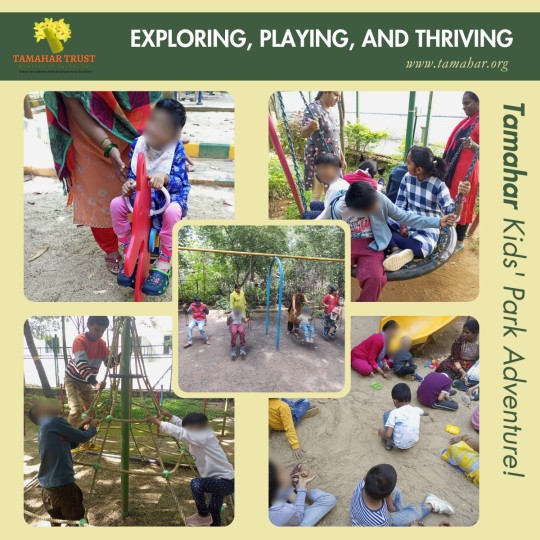
In addition to our core services, we extend support to families through mental health services designed to help them cope with stress. We also offer skill development programs for mothers, empowering them with profitable skills. Tamahar is proud to be among the distinguished organizations for developmentally disabled individuals, and we stand out as a trusted autism school in Bangalore near you. We ensure that families get the necessary support to get a proper diagnosis for their children, and to enroll them in Government supported schemes like the Niramaya, Pension, UDID, etc
Discover the transformative impact of our holistic interventions at Tamahar, where we are committed to fostering the growth and development of children with special needs and providing invaluable support to their families.
#Target Keywords#autism schools in bangalore#schools for autism in bangalore#ngo working for disabled in india#association for mentally challenged bangalore#teaching kids with learning disabilities#vocational training for special child#Mental Health services#donate to disabled#volunteer for disabled child care#special schools in bangalore for autism#school for mentally challenged in bangalore#donation for children's education#autism centres in bangalore#partner with ngo#best autism school in bangalore#donate for disabled child#autistic school in bangalore#children ngo in bangalore#school for hyperactive child in bangalore#ngo for physically handicapped in bangalore#ngo for mentally challenged in bangalore#mentally disabled charity#child development organizations#mentally retarded children#special education schools#charitable trust in bangalore#sponsor a child education in india#ngo for mentally challenged near me#autism school in bangalore
0 notes
Text
donation money to charity in Delhi
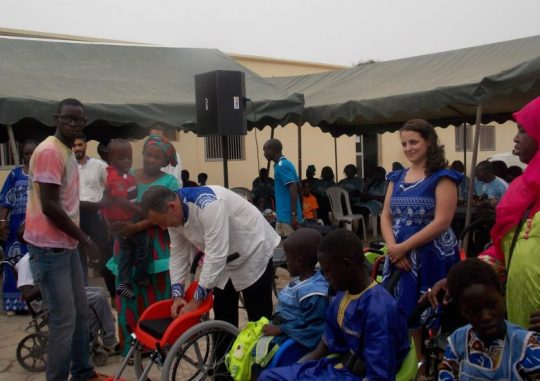
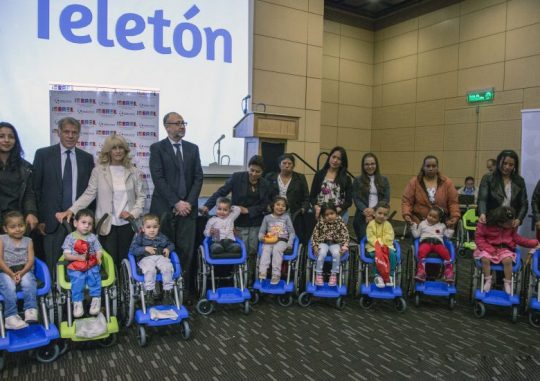
Wheelchair of hope is available in many cities like mumbai, gujarat, delhi, bangalore, noida and mumbai The plan was launched in 2015.
The main aim of the wheelchair of hope is to make sure that the mobility of children is accessible to those who are in need of a wheelchair and they are able to walk in the same way. Many children's medical care is focused on making wheelchairs, which are not only functional, but are designed to light up children with colorful and bright colors.
The wheelchair of hope is visible on the face:
1. Affordability: Striving to produce cost-effective wheelchairs for children and families in need.
2. Design and Comfort: Hope Wheelchair aims to provide millions of children with wheelchairs that are not only functional but also comfortable and look good.
3. Global Reach: The organization is working in different cities of India like Mumbai, Gujarat, Delhi, Bangalore, Noida and most of the work is being done in cities and wheelchairs are being distributed to needy children and NGOs. NGOs are helping.
4. Community Involvement: Wheelchairs of Hope involve the community in the distribution process and volunteers to ensure that wheelchairs reach those who need them most.
5. Impact Measurement: The organization regularly evaluates the impact of its services on the lives of children, and ensures that the services provided can improve the impact of wheelchairs.
Wheelchair of hope is provided to disabled children. We believe that every child deserves the chance to participate in society without the effects of their shared characteristics.
Wheelchair of hope can be donated across cities in India. As per my knowledge the wheel of hope has not been able to operate in any city of India. Some examples in this business may include:
New Delhi
Mumbai
Bangalore
Chennai
Gujarat
Hyderabad
The information in the Yeh City reference is subject to change, so you are advised to check the Wheelchairs of Hope website or a relevant source for the latest information.
2 notes
·
View notes
Text
What can Someone Do with a Master's Degree in Social Work?
Introduction:
People who desire to contribute to raising the standard of living for communities who are at risk and underprivileged are drawn to the social work profession. Dr. Suresh Borole helps to Make a difference in your area of interest more directly is made possible by online social work degree programs' many specializations or areas of improvement.
Between 2016 and 2026, the demand for social workers is expected to increase at a pace of 16%, which is much higher than the average growth rate for all occupations. Professionals are being prepared through advanced online social work degree programs to contribute positively to this dynamic area at the local, state, national, and worldwide levels.
Master of Social Work, Scope In India:
Social work is one of the top 10 development sectors with the quickest growth rates in the current economic environment. Social workers, who work in this sector, actively encourage change at the individual, communal, and policy levels and help individuals produce positive results. Everyone, from a fourth-grader to well-known figures like Dia Mirza or well-known brands like Times of India, is supportive and eager to provide humanitarian service to our nation.
This skill is essential in today's society since, without it, we risk neglecting the less fortunate people in our zeal to grow personally and professionally. A postgraduate program called the Master of Social Work, MSW provides students with a combination of theoretical knowledge and practical experience in the development of underserved communities. An ideal MSW program structure would involve students working with these communities while being guided by professionals, receiving classroom instruction, and engaging in real-time contact.
MSW: Jobs and Career Opportunities
A Master of Social Service degree, sometimes known as an MSW, opens you several opportunities in stimulating and demanding community work environments. The degree gives students the chance to investigate many specializations and pursue careers in fields including healthcare, education, and women's and children's development, to name a few. A Best Social Worker in Jalgaon the initial focus of a graduate's work is on issues such as women's empowerment, mental health support, substance addiction and rehabilitation, refugee rights, family welfare, financial aid for low-income families, and child safety.
Certain certificates may be needed for some of the jobs in these regions. Most social work graduates work for government entities, international NGOs, and for-profit health organizations. A social work degree may be the best option for those who find satisfaction in assisting and fostering the growth of members of society's leadership.
After Acquiring a Master of Social Work, Many People Choose the Following Careers:
Administration and Management
Advocacy and community organization
Child welfare
Developmental disabilities
Health care
International social work
Justice and correction
School Social Work
Policy Analyst
Corporate Social Responsibility
Human Resources Coordinator/Specialist
Why Does Our Society Need Social Workers?
Anyone having an MSW degree should focus on raising the bar for human life and wellbeing. In this line of work, communities or persons who are oppressed, impoverished, vulnerable, or unheard receive extra attention. Many people think that pursuing this vocation will help to advance justice and social progress.
Benefits of Being a Social Worker:
Social Workers Make a Positive Impact
Empowering Communities
Every Day Is Different
Many Opportunities for Specialization
Flexible Hours
Social Work Is a Growing Field
Increased Job Opportunities
Higher Salaries
Path to Teaching
Diverse Social Work Career Options
You can gain transferable skills
The world needs social workers
You will meet like-minded people
It teaches you the true value of things
Simulation facilities
What Does the Future Hold for Social Workers?
From 2019 to 2029, the employment of social workers is predicted to grow by 13%, creating more than 90,000 new job opportunities. This form of work security is quite rare in professions, which is partly a result of the increasing inequalities in local communities.
Social workers are the human translators of change in a society that is changing quickly. As gaps increase and become more pronounced, the necessity for social workers will increase.
Although the profession's growth overall is encouraging, MSW degree holders have even better job prospects. Real-time labor market data from the previous year show that obtaining a master's degree in social work increased career chances by 33%.
2 notes
·
View notes
Text
Transforming Futures: The Role of Child Education NGOs in India
Introduction
Child education NGOs in India are at the forefront of ensuring that every child, regardless of their socio-economic background, has access to quality education. These organizations address educational disparities and work towards creating a brighter future for underprivileged children. In this article, we explore the pivotal role of child education NGOs in India, their key initiatives, challenges, and the profound impact they have on society.
Addressing Educational Disparities
Bridging the Gap
Child education NGOs play a crucial role in bridging the educational divide between urban and rural areas. By establishing schools and learning centers in remote regions, these organizations provide access to education where it is needed the most.
Inclusive Education
NGOs such as Pratham and Save the Children focus on inclusive education, ensuring that children with disabilities and those from marginalized communities receive the support they need to thrive academically.
Key Initiatives of Child Education NGOs
School Infrastructure Development
Many NGOs invest in developing school infrastructure, including building classrooms, providing furniture, and setting up libraries. Organizations like Smile Foundation and Akshaya Patra also focus on creating a conducive learning environment by ensuring clean drinking water and sanitation facilities.
Teacher Training Programs
Ensuring quality education requires well-trained teachers. NGOs such as Teach For India and Azim Premji Foundation conduct teacher training programs to enhance teaching methodologies and pedagogical skills, thereby improving the overall quality of education.
Digital Education and E-Learning
In the digital age, access to technology is crucial for modern education. NGOs like eVidyaloka and Digital Empowerment Foundation leverage technology to provide digital learning resources, online classes, and e-learning platforms, ensuring that children in remote areas are not left behind.
Community Engagement and Empowerment
Parental Involvement
Child education NGOs recognize the importance of involving parents in their children's education. Workshops and training sessions help parents understand the value of education and equip them with the tools to support their children's learning journey.
Community Awareness Programs
NGOs engage with local communities through awareness programs, highlighting the importance of education and encouraging community participation. This approach helps in building a supportive environment for children's education.
Overcoming Challenges
Reducing Dropout Rates
High dropout rates are a significant challenge in many parts of India. Child education NGOs address this issue by implementing flexible schooling hours, providing mid-day meals, and offering vocational training programs to keep children engaged and motivated.
Ensuring Sustainable Funding
Sustainable funding is crucial for the continuity of educational programs. NGOs often collaborate with corporate partners, international organizations, and government agencies to secure the necessary resources for their initiatives.
Impact and Success Stories
Transforming Lives Through Education
The impact of child education NGOs can be seen in the success stories of countless children who have overcome adversity to achieve academic success. These organizations provide not just education but also hope and a pathway to a better future.
Long-Term Community Benefits
Educated children grow up to be informed, responsible citizens who contribute positively to their communities. The ripple effect of education extends beyond individuals, fostering economic growth and social development in the long term.
Conclusion
Child education NGOs in India are instrumental in shaping the future of the nation by ensuring that every child has the opportunity to learn and succeed. Their dedication to addressing educational disparities, engaging communities, and overcoming challenges underscores their vital role in building a brighter, more equitable future for all. Through continuous efforts and innovative approaches, these organizations are transforming lives and paving the way for sustainable development.
0 notes
Text
Relief India Trust NGO for Disabled Taking care of those who can’t for themselves
Disability is a common issue in India, often present from birth. Unfortunately, it not only hinders the growth of individuals but can also lead them to believe they are incapable of achieving anything, which can harm their mental health. The best treatment for a disabled person is to exhibit good behavior and provide mental support to help them overcome their disability and regain hope in their ability to make a difference in life. In this regard, we, as an NGO for Disabled, work towards uplifting such people with disabilities by providing them with the necessary support and encouragement to help them overcome their challenges. Read More
0 notes
Text
Empowering Underprivileged Children: The Impact of Vibha NGO in India
In the vast landscape of India, where disparities in education persist, NGOs play a pivotal role in bridging the gap and ensuring every child has access to quality education. Among these, Vibha stands out as a beacon of hope, dedicated to uplifting underprivileged children across the nation. With a mission to transform lives through education, Vibha has emerged as one of the best NGOs for children's education in India.
Vibha's journey began with a simple yet profound vision – to empower underprivileged children with the gift of education. Recognizing education as the key to breaking the cycle of poverty, Vibha embarked on a relentless pursuit to provide learning opportunities to those who need it the most. Focused on holistic development, the NGO not only imparts academic knowledge but also nurtures life skills and values essential for success in today's world.
Operating with a grassroots approach, Vibha identifies communities and regions where children lack access to quality education. Through strategic partnerships with local stakeholders and educators, Vibha establishes sustainable programs tailored to the specific needs of each community. Whether it's setting up schools in remote villages or implementing digital education initiatives in urban slums, Vibha's interventions are designed to make a lasting impact.
One of Vibha's flagship initiatives is its focus on underprivileged children's education in India. With a deep understanding of the challenges faced by children from marginalized backgrounds, Vibha provides targeted support to ensure their academic success. From providing scholarships and educational materials to offering remedial classes and mentorship, Vibha's comprehensive approach addresses the multifaceted barriers to learning.
Moreover, Vibha recognizes the transformative power of digital education in today's technology-driven world. In response to the growing demand for digital literacy, Vibha has pioneered digital education initiatives across India. By equipping schools and community centers with computers, internet connectivity, and educational software, Vibha is opening doors to a world of opportunities for underprivileged children.
Central to Vibha's ethos is its commitment to inclusivity and equity in education. The NGO firmly believes that every child, regardless of their socio-economic background, deserves access to quality education. As such, Vibha actively works towards promoting gender equality, supporting children with disabilities, and reaching out to marginalized communities often overlooked by mainstream education systems.
Beyond academics, Vibha places a strong emphasis on holistic development, recognizing that education extends beyond the classroom. Through extracurricular activities, life skills workshops, and health awareness programs, Vibha nurtures well-rounded individuals capable of realizing their full potential. By instilling values of empathy, resilience, and community service, Vibha empowers children to become agents of change in their own lives and society at large.
In addition to its direct interventions, Vibha also advocates for policy reforms and systemic changes to address the root causes of educational inequality. By engaging with policymakers, educators, and civil society organizations, Vibha amplifies the voices of underprivileged children and advocates for policies that prioritize education as a fundamental right.
As a testament to its impact, Vibha has garnered recognition as one of the best NGOs for children's education in India. With a track record of success spanning decades, Vibha has touched the lives of millions of children, offering them hope, opportunity, and a brighter future. However, the journey is far from over, and Vibha remains steadfast in its commitment to transforming lives through education.
In conclusion, Vibha stands as a shining example of the transformative power of education and the indomitable spirit of human compassion. By championing the cause of underprivileged children in India, Vibha not only changes individual lives but also contributes to building a more equitable and inclusive society for all. As we look towards the future, let us continue to support organizations like Vibha in their noble mission to ensure every child has the chance to learn, grow, and thrive.
In the realm of education, Vibha's impact reverberates far beyond the confines of classrooms and school buildings. It extends into the hearts and minds of children who dare to dream of a better tomorrow, despite the odds stacked against them. It reaches into communities, where the seeds of change are sown, nurtured, and cultivated, bearing fruit in the form of empowered individuals and empowered societies.
Vibha's success stories are as diverse as the communities it serves. In rural villages, where access to education is limited, Vibha's intervention has transformed dilapidated school buildings into vibrant centers of learning. Through infrastructure development projects and teacher training programs, Vibha has elevated the quality of education and inspired generations of children to pursue their dreams.
In urban slums, where poverty and deprivation loom large, Vibha's digital education initiatives have opened up new horizons for children who once had little hope for the future. By harnessing the power of technology, Vibha has empowered children with essential digital skills, equipping them to navigate an increasingly digitized world and break free from the cycle of poverty.
Moreover, Vibha's emphasis on inclusivity ensures that no child is left behind. Whether it's providing tailored support to children with disabilities or promoting girls' education in patriarchal societies, Vibha advocates for a more inclusive and equitable education system where every child has the opportunity to thrive.
Behind Vibha's success are countless unsung heroes – dedicated volunteers, passionate educators, and generous donors – who selflessly contribute their time, expertise, and resources to the cause. It is their collective efforts and unwavering commitment that fuel Vibha's mission and drive its impact forward.
Looking ahead, Vibha remains steadfast in its commitment to advancing the cause of education and empowering underprivileged children across India. With a focus on innovation, collaboration, and scalability, Vibha seeks to expand its reach and deepen its impact, ensuring that every child, regardless of their background or circumstances, has the chance to unlock their full potential.
As individuals, communities, and societies, we all have a role to play in shaping the future of education and creating a more just and equitable world. Whether it's through volunteering, advocacy, or philanthropy, we can each contribute to Vibha's mission and make a difference in the lives of underprivileged children.
In closing, Vibha serves as a shining beacon of hope and a testament to the transformative power of education. Through its tireless efforts and unwavering dedication, Vibha continues to inspire and uplift countless lives, illuminating a path towards a brighter, more inclusive future for all. As we stand on the threshold of possibility, let us join hands with Vibha and together, pave the way for a world where every child has the opportunity to learn, grow, and thrive.
Website: https://vibha.org/
Contact: 1-408-997-9992
Email: [email protected]
0 notes
Text
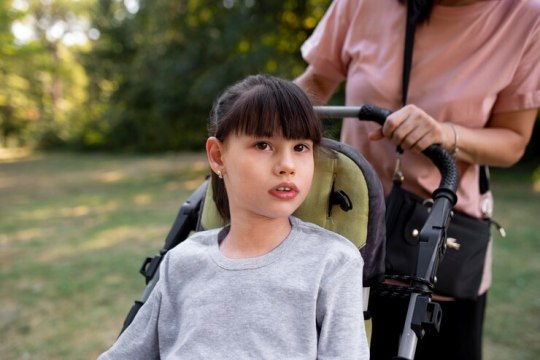
NGOs are continually working for the upliftment of children with disability in India and also taking plenty of initiatives for their betterment.
0 notes
Text
We The People: Creating A Job Market For The Intellectually Disabled
A year into its inception in 2011, the founders of the Mann, a Mumbai-based NGO that offers training in making art and crafts products to people with intellectual disability—IQ below 70—were in for a surprise. Four of their beneficiaries had started imitating the trainers, using the commands, action cues like flash cards, etc., to direct fellow students. In encouragement, the foundation hired them as assistant trainers on a monthly stipend.
The remuneration brought a sea change. The students, who mostly belonged to lower income groups living in chawls, slums or single-parent households, felt a sense of purpose while their families no longer saw them as a burden. It prompted the founders to design a curriculum that identified mainly housekeeping/laundry roles in industries such as F&B, corporate, retail, hospitality and art, suitable for people with intellectual disability, based on which training programmes were created. But the plan hit a roadblock when companies refused to employ the students.
“For almost two years, we were shunned. Most companies didn’t even hear us out, saying these people don’t belong in an office. Finally, Café Zoe in Mumbai (now defunct) hired one beneficiary. Their instant feedback was that habits like punctuality were achieved among other staff after the new member joined,” recalls co-founder Beverly Louis. “If they had no intention to work the next day, they would go up to other employees and say, ‘Tomorrow I’m not coming. I’m going to be unwell but actually, I am going to attend a wedding.’ This refreshing honesty made others feel silly for not being open,” says Louis.
Word spread and other restaurateurs approached Café Zoe, who put them in touch with the NGO. Now, 60+ companies are employment partners, including Microsoft and KPMG. In the pandemic, the curriculum was digitised. “We shared it with NGOs across India that are experiencing a shortage of funds, staff and resources. NGOs are already struggling to sustain, so why add competitiveness to it?” Louis reasons.
The training is free of cost as it is run on donations. Beneficiaries mostly complete their training within 6-8 months, while the severe cases can take three years. “We have a simulated setup at the centre, and for the first two weeks, expose them to all industries and identify the jobs best suited for them. For instance, those on the autism spectrum do well with process-oriented roles involving a routine like supermarket attendants that requires them to arrange items, do data entry, check expiry dates, handle cash registers, etc.”
After a beneficiary is employed, Mann conducts sensitisation drives with the company’s employers about the individual and their disability. A job coach, who is a Mann volunteer, accompanies the individual to work for the first two weeks, and thereafter a fellow employee or ‘work buddy’ is trained to help the individual thereafter. “At present, companies want to ride the diversity and inclusion wave. But most organisations comply with the government’s rule of two per cent disability quota by hiring physically or hearing
impaired, not intellectually challenged.” Still, the success stories of Mann students are many. About 353 Mann beneficiaries are currently salaried employees, earning anything between Rs 7K to 35K. “These are children of maids, taxi drivers, who now contribute towards their siblings’ education and down payments for their homes,” notes Louis, with pride.
To know more: https://mann.org.in/
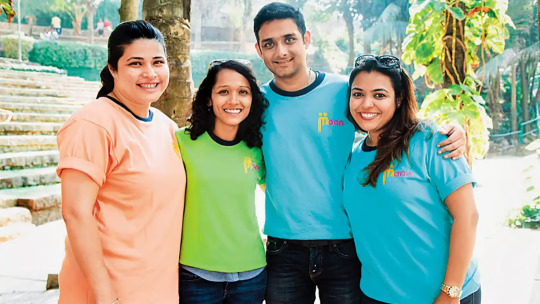
0 notes
Text
Sightsavers India: A Leading NGO in Delhi and Beyond
Sightsavers India stands as a beacon of hope and change in the realm of disability inclusion and eye care. As one of the top NGOs in India and specifically in Delhi, Sightsavers India has been tirelessly working towards the mission of protecting sight and promoting disability inclusion for decades. With a steadfast commitment to their cause, Sightsavers India has earned recognition as one of the best NGOs not only in Delhi but across the nation.
visit: https://sightsaversin.blogspot.com/2024/02/protecting-sight-and-promoting.html
0 notes
Text
https://wotr.org/livelihoods/
NGO Working for Rural Development in India | WOTR
We are a Rural development NGO India. Our NGO works on building an inclusive India for persons with disabilities in rural areas, women and girl education, healthcare and improving rural infrastructure in India. Our mission is to strengthen community-led development initiatives to achieve positive social, economic, and environmental change across rural India. Donate Now!
0 notes
Text
Top developmental disabilities organization
Tamahar, a non-profit organization founded in 2009 by Ms. Vaishali Pai, is dedicated to supporting children facing developmental delays due to brain damage, including conditions like Autism, Cerebral Palsy, Down’s Syndrome, Rare diseases, and Genetic disorders. As one of the best NGOs working for childhood disability in India, our holistic developmental intervention approach encompasses Core intervention, Functional Education, Pre-vocational training, Occupational Therapy, Speech Therapy, Physiotherapy, Music Therapy, Yoga, Arts, Dance, and Sports.
As a top developmental disabilities organization offering a comprehensive range of services tailored to the unique needs of each child from birth onwards, we are recognized as an NGO for the mentally challenged in Bangalore, specializing in providing transformative interventions to enhance the lives of children facing developmental challenges.
In addition to our core services, we extend support to families through mental health services designed to help them cope with stress. We also offer skill development programs for mothers, empowering them with profitable skills. Tamahar is proud to be among the distinguished organizations for developmentally disabled individuals, and we stand out as a trusted autism school in Bangalore near you. We ensure that families get the necessary support to get a proper diagnosis for their children, and to enroll them in Government supported schemes like the Niramaya, Pension, UDID, etc
Discover the transformative impact of our holistic interventions at Tamahar, where we are committed to fostering the growth and development of children with special needs and providing invaluable support to their families.
Our Mission
To enable children with brain damage and their families to live a happy, healthy, and dignified life in an inclusive society through rehabilitation services, capacity building, community engagement, and advocacy.
Our Vision
Prevention & Alleviation of developmental disability in children with brain damage.
Contact Us
+91 96633 25766
15/2, 11th Main Rd, 13th Cross Rd, Malleshwara, Bengaluru, Karnataka 560003.
#Target Keywords#autism schools in bangalore#schools for autism in bangalore#ngo working for disabled in india#association for mentally challenged bangalore#teaching kids with learning disabilities#vocational training for special child#Mental Health services#donate to disabled#volunteer for disabled child care#special schools in bangalore for autism#school for mentally challenged in bangalore#donation for children's education#autism centres in bangalore#partner with ngo#best autism school in bangalore#donate for disabled child#autistic school in bangalore#children ngo in bangalore#school for hyperactive child in bangalore#ngo for physically handicapped in bangalore#ngo for mentally challenged in bangalore#mentally disabled charity#child development organizations#mentally retarded children#special education schools#charitable trust in bangalore#sponsor a child education in india#ngo for mentally challenged near me#autism school in bangalore
0 notes
Text

Narayan Seva Sansthan Makes a Difference to People’s Lives with their Charitable Activities
Narayan Seva Sansthan is a non-profit organisation that has made a huge difference in the lives of several people all across the country. Narayan Seva Sansthan is the best NGO in India that works towards eradicating the root causes of disability by facilitating corrective surgeries. Alongside, the organisation also provides free food to people, facilitates education as well as skill training, and helps with all forms of medical care for the poor and underprivileged.
0 notes
Text
NGO for Handicapped In India - MMF
MMF Charity provides support to the differently-abled through its handicapped NGO in India. Join our NGO for disabled and physically handicapped in India and help us make a difference in the lives of those in need. Visit Now!
https://www.mmpc.in/our-work/differently-abled
0 notes
Text
What are the Objectives of NGOs in Children’s Education?
In a world striving for progress and development, the role of Non-Governmental Organizations (NGOs) in India has become increasingly vital, especially in the realm of children’s education. These organizations stand as champions of change, guided by a set of principles that shape their actions and objectives. In this comprehensive exploration, we’ll delve into the core objectives of Noida NGOs in children’s education, while also emphasizing the critical role they play in nurturing India’s most valuable asset — its children.
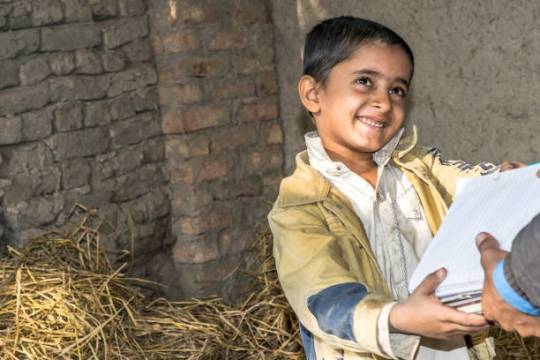
The Guiding Principles of NGOs
1.Commitment to Social Welfare: At the heart of every NGO’s mission is an unwavering commitment to the welfare of society. This commitment extends to the most vulnerable and impressionable — children. NGOs strive to provide them with a better future through education.
2. Equity and Inclusivity: Ensuring that every child, regardless of their background or circumstances, has equal access to quality education is a fundamental principle. NGOs aim to erase disparities in education based on caste, creed, gender, or socio-economic status.
3. Transparency and Accountability: Transparency in their operations is a non-negotiable principle. NGOs maintain clear financial records and ethical fundraising practices. This transparency fosters trust and credibility among donors and beneficiaries.
4. Community-Centric Approach: Children’s education is most effective when it resonates with the unique needs and aspirations of the local community. NGOs actively engage local communities in decision-making, ensuring the relevance of educational initiatives.
5. Independence: NGOs maintain independence from political or commercial influences, allowing them to address issues objectively and impartially, thereby ensuring that children’s education remains a priority.
6. Human Rights and Dignity: Protecting and promoting the rights and dignity of children is a cornerstone principle. NGOs stand as guardians against any form of child rights violation.
7. Sustainable Development: The vision for children’s education extends beyond immediate concerns. NGOs promote sustainable development in education, equipping children with the skills they need to become self-reliant, responsible citizens.
8. Empowerment and Capacity Building: Empowering children through education is a primary objective. NGOs offer programs that equip children with not just knowledge but also essential life skills.
9. Collaboration and Partnerships: Collaboration is a key to expanding the reach of children’s education. NGOs actively seek partnerships with government agencies, other NGOs, and the private sector to pool resources and expertise.
10. Advocacy for Policy Change: NGOs don’t confine their efforts to the grassroots. They actively engage in advocating for policy changes that can significantly impact children’s education at a broader level, shaping the future.
Objectives of NGOs in Children’s Education
1.Universal Access to Quality Education: The primary objective of NGOs in children’s education is to ensure that every child, regardless of their socio-economic background or geographic location, has access to quality education. This involves building schools, providing scholarships, and improving existing educational facilities.
2. Eradicating Illiteracy: NGOs work relentlessly to eliminate illiteracy by implementing programs and initiatives that target both children and adults. They understand that a literate community is a stronger, more empowered one.
3. Promoting Inclusive Education: Inclusivity is a core principle. NGOs strive to create an inclusive educational environment where children with disabilities or from marginalized communities receive the support they need to thrive academically and socially.
4. Skill Development: Beyond traditional education, NGOs focus on skill development. They aim to equip children with practical skills that make them employable and self-sufficient. Vocational training is a significant part of this effort.
5. Nutrition and Health: NGOs recognize that a healthy child is better equipped to learn. They often integrate nutrition and healthcare programs into their education initiatives, ensuring children receive proper nourishment and healthcare.
6. Child Rights and Protection: Ensuring children’s rights are protected is a crucial objective. NGOs work to prevent child labor, child trafficking, and all forms of exploitation. They also create safe spaces for children in need of protection.
7. Promoting Gender Equality: Promoting gender equality in education is a critical objective. NGOs strive to ensure that girls have equal access to education and are not subjected to gender-based discrimination.
8. Digital Literacy: In the digital age, digital literacy is essential. Many NGOs introduce children to information technology, ensuring they are prepared for a technology-driven future.
9. Cultivating Life Skills: Education goes beyond academics. NGOs aim to nurture life skills like problem-solving, critical thinking, and communication, which are essential for a child’s holistic development.
10. Community Involvement: An objective that sets NGOs apart is community involvement. They actively engage parents, local leaders, and the broader community in children’s education, fostering a sense of ownership and responsibility for the children’s future.
Conclusion
The objectives of NGOs in children’s education are multifaceted and reflect a deep commitment to ensuring that every child in India has the opportunity to learn, grow, and succeed. The role of these organizations is not limited to classrooms but extends to transforming the future of the nation. By embracing their guiding principles and pursuing these objectives, NGOs in India continue to shape a brighter, more equitable future for children, which, in turn, fosters the progress and development of the nation as a whole.
0 notes
Text
World Teachers’ Day: Celebrating The Teachers of the World
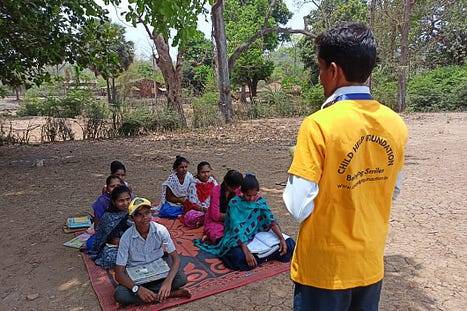
Teachers play a vital, albeit underappreciated role in our lives. Behind every successful person are the efforts of hundreds of teachers, who have moulded them into a remarkable human being.
October 5th is annually celebrated as World Teachers’ Day to commemorate the signing of recommendations by the International Labour Organization (ILO) and the United Nations Educational, Scientific and Cultural Organization (UNESCO). This recommendation outlines standards relating to education personnel policy, recruitment, and initial training as well as the continuing education of teachers, their employment, and working conditions.
This day focuses on celebrating and improving the conditions of teachers around the world. So, to celebrate the teachers, we would like to include five stories of inspiring teachers:
Savitribai Phule
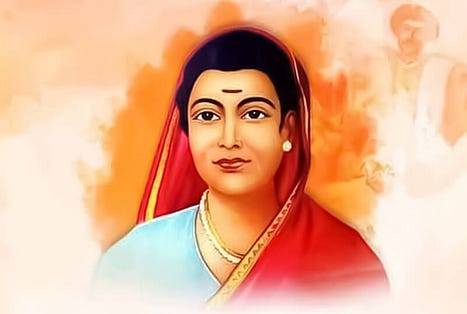
Without Savitribai Phule, the feminist movement in India would have been held back by decades. Being illiterate, she was trained by her husband Mahatma Jyotiba Phule to be a teacher. She and her husband opened the first school for girls in India in 1848, and Savitribai Phule went on to become the first female teacher in India. However, her mission was not a path of roses, but roads laid with thorns and stones, as she endured constant societal abuse. However, the anger of the mob failed to deter her, as her legacy lives on in every female student in India.
2. Ranjitsinh Disale
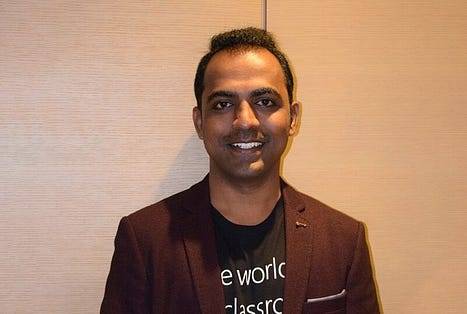
Ranjitsinh Disale first rose to prominence in 2020, after bagging the coveted ‘Global Teacher Prize’. Seeing the condition and low attendance rate of Zilla Parishad School in Paritewadi, Solapur, Maharashtra, Ranjitsinh went beyond what was expected and changed the school and its students. Ranjitsinh not only translated the textbooks into the mother tongues of students but also embedded QR codes to give students access to audio poems, video lectures, stories and assignments. His impact cannot be put into words, as teen marriages have been completely stopped in the village and the attendance rate of girls now sits at 100%. One of the girls even went on to graduate from a university, a dream which seemed impossible at one point.
3. Anne Sullivan

Being born with trachoma, Anne Sullivan thought that she would never be able to read and write. Little did she know, that she would serve as an inspiration to not only the disabled community but also change the life of one of the most celebrated figures in modern human history. Enduring pain and humiliation, Anne Sullivan not only learned how to read and write but also excelled academically. She then went on to adopt an improvised teaching technique to help Helen Keller become the first deaf-blind person in the United States to obtain a degree from college.
4. Matiullah Wesa

Matiullah Wesa recently made headlines on March 27, 2023, when he was arrested by the Taliban for his advocacy of women’s education. Activists from around the world spoke in his support, including the famous Hollywood actress, Angelina Jolie. In addition to being an activist, Matiullah is an educator, who runs an NGO called Pen Path, which with the help of 2,400 volunteers, helps to set up local classrooms, find teachers and distribute books and stationery. After the Taliban banned women’s education, Matiullah fearlessly protested the policy, leading to his arrest. Sadly, this remarkable man is still imprisoned.
5. Erin Gruwell

Erin Gruwell is a founder of the Freedom Writers Foundation and created the Freedom Writer Methods, a progressive teaching philosophy and curricula designed to achieve excellence from all students. Erin gained popularity in 1998 when she led 150 students on the brink of dropping out to high school graduation. She achieved this by asking students to keep a journal, make movies of their lives, and relate the family feud in Romeo and Juliet to a gang war. She also encouraged her students to read books like The Diary of a Young Girl, Zlata’s Diary and Night. Students used to express themselves anonymously through journals and shared them with classmates. As a result, children who refused to speak with students belonging to different races became like a family. Her life was later adapted into a film called Freedom Writers, which gained critical acclaim.
Filaantro realizes the important role teachers play in the life of a child. Filaantro, along with its crowdfunding partner, Child Help Foundation has trained numerous teachers. So they can educate children better.
Thank you for reading this article. Make sure to share it with all your friends and family members.
#fundraising#raise funds#charity#crowdfunding#donations#education#nonprofits#filaantro#donate#volunteering
0 notes
Text

Discover the inspiring efforts of NGOs working tirelessly for disabled people in India! Explore how these organizations are changing lives and organizing for a more inclusive society.
0 notes